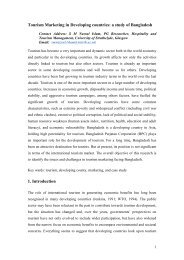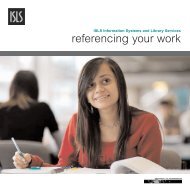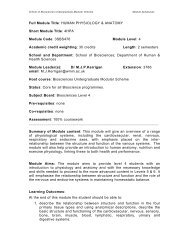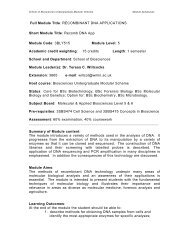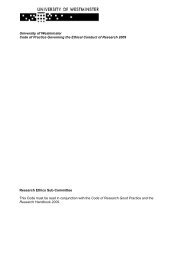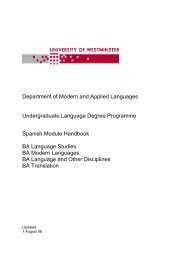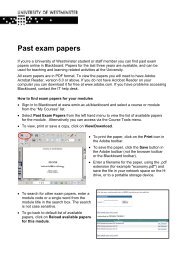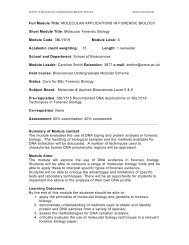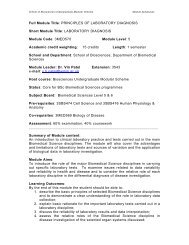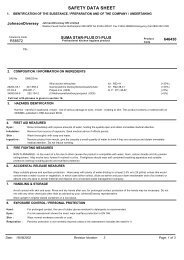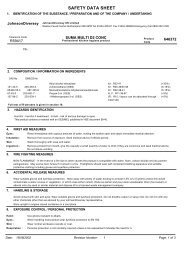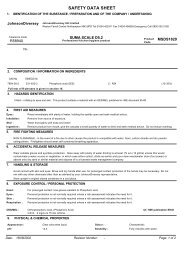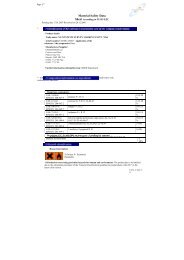CONTENTS 1. Introduction 1.1 Course Outline 1 1.2 Introduction ...
CONTENTS 1. Introduction 1.1 Course Outline 1 1.2 Introduction ...
CONTENTS 1. Introduction 1.1 Course Outline 1 1.2 Introduction ...
You also want an ePaper? Increase the reach of your titles
YUMPU automatically turns print PDFs into web optimized ePapers that Google loves.
10.6 Reporting Practical Work<br />
Unless you are told to the contrary, use a traditional scheme for the layout of an experimental<br />
report:<br />
<strong>1.</strong> Title of Experiment<br />
2. Object<br />
3. Theory (if appropriate)<br />
4. Apparatus (equipment and materials)<br />
5. Method<br />
6. Observations (readings)<br />
7. Calculations (if appropriate)<br />
8. Discussion of results<br />
9. Conclusions<br />
In many cases a pro forma will be available for your report. In all cases your report must<br />
start with the following important information (or it may not be marked):<br />
Your name and year<br />
The name(s) of your co-worker(s)<br />
Title and date of the experiment<br />
Module identification<br />
A pro forma student feedback sheet, available from the Undergraduate Office, must be<br />
submitted with each item of coursework submitted for marking. Take care to fill in all the<br />
data requested on the form.<br />
10.7 Action in the case of failure<br />
For details on University regulations and procedures in the case of failure in a module or element of<br />
a module, please refer to the Modular Framework for Undergraduate <strong>Course</strong>s in the Handbook of<br />
Academic Regulations 2005. You should note that, in order to be eligible for the award of an<br />
Honours Degree, the maximum number of credits that can be attempted at Credit Levels 5 and 6 is<br />
330 credits. Therefore, if a student fails and does not pass on reassessment (if offered) modules<br />
that will take their number of credits at Credit Levels 5 and 6 over this limit, then they will not be<br />
eligible for the award of the BSc (Hons) Photographic Science<br />
10.8 Mitigating Circumstances (MC)<br />
If illness or some unforeseen circumstances unavoidably and significantly affect your performance<br />
in assessment (e.g. missing a coursework deadline or an exam or failing due to unrepresentative<br />
performance), you can submit an application for Mitigating Circumstances (MCs) to be taken into<br />
consideration. To do so, you should submit an application in writing (where possible using a<br />
Mitigating Circumstances claim form) to the Campus Office, supported by original documentary<br />
evidence (e.g. a medical certificate), at the earliest available opportunity. Mitigating<br />
Circumstances Boards meet throughout the year and it is in your best interests to submit your<br />
claim as quickly as possible, as you will receive a decision on your claim much earlier and will be<br />
in a better position to plan your studies for the remainder of the year. The final deadline for<br />
submission of all claims during the 2005/06 academic session is 18.00hrs on Wednesday 6 June<br />
DPI_Hbook 33 ©University of Westminster



